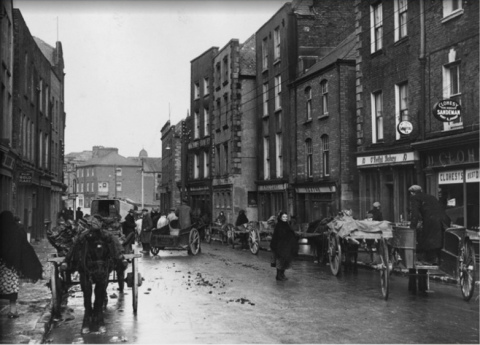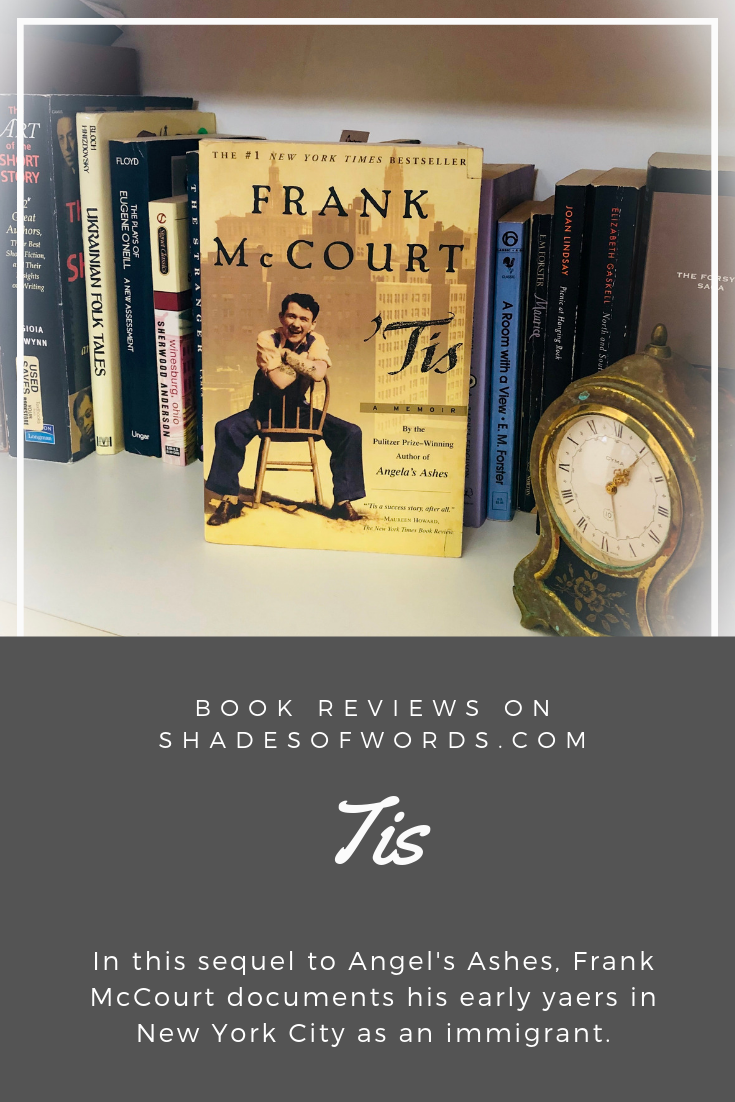I have mixed feelings about this book as I had certain expectations before I started reading it. I expected it to be the story of the American dream as it’s like in the movies; the hero will rise above himself to be a bigger and better person. I was obviously mistaken. This is about real life and real life is not like movies.
‘Tis begins where Angela’s Ashes left off with Frank McCourt in New York. The book’s start is extremely funny and you notice the contrast with Angela’s Ashes instantly. This book is brighter and happier.
Frank McCourt experiences New York as any Irish migrant of that time. Cheap boarding lodges, menial jobs, ridicule, being a draftee in Germany post-war and being in perpetual danger of caving into the curse of the Irish drink!
I think this is where I was disappointed. Having read Angela’s Ashes, my perception of Frank was that of a person wise beyond his years, extremely intuitive, someone who clearly distinguishes between what is and what should be. You wonder why someone like him would waste his years hauling off cargo at warehouses and drinking at pubs.
Before you completely give up on him, Frank redeems himself and decides to get himself a college education so that he can become a teacher.
Meanwhile, Frank’s brothers move to New York and acquire fame and name as bartenders and radio hosts. His decision to be a teacher is puzzling, especially, when he can make more money and have a better life if he joins his brothers in business.
It’s very hard to make him out as a teacher. Does he like his job? Why is he doing it? Does he even enjoy teaching? At times you can almost sense resentment in his teaching.
What I found most insightful was his experiences in teaching. His first stint at teaching in a vocational school in New York where nobody expected to learn anything and everyone just wanted to get passing grades. His next major experience is at an adult evening class, where education meant a passport to a respectable life. He then talks about his experience at the most elite Stuyvesant school where education meant getting the right grades to get into Ivy League.
Through Frank’s eyes, we also see the cultural evolution of America during the wars. The value system is evolving. During the world wars, the parents were patriots, they believed in fighting the Japs/Germans. The kids grew up in the post-war boom and they cared just about themselves and their drinks, fags, and sex. Then came the next generation that was sent to Vietnam war – reluctant draftees, free love believer, hippies, fighting for all causes.
We also have an appearance from Frank’s father, whom we had hoped had left the lot all together! His presence clearly dredges up old wounds. Frank’s behavior towards him is almost paradoxical. There are no grudges but there is no forgiveness either.
‘Tis a success story after all’ – The New York Times Book review verdict on the book. I am not sure I entirely agree because I don’t know if that was a successful life. But I am sure it’s better than a lot.
Verdict
Must read if you have read ‘Angela’s Ashes’




1 comment
[…] Follow Frank’s journey as goes to America, here […]